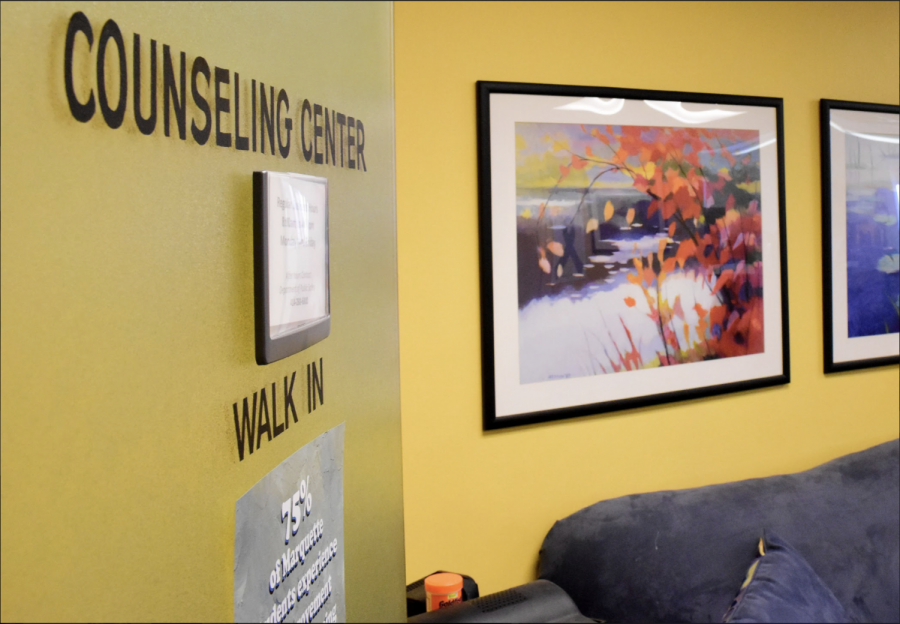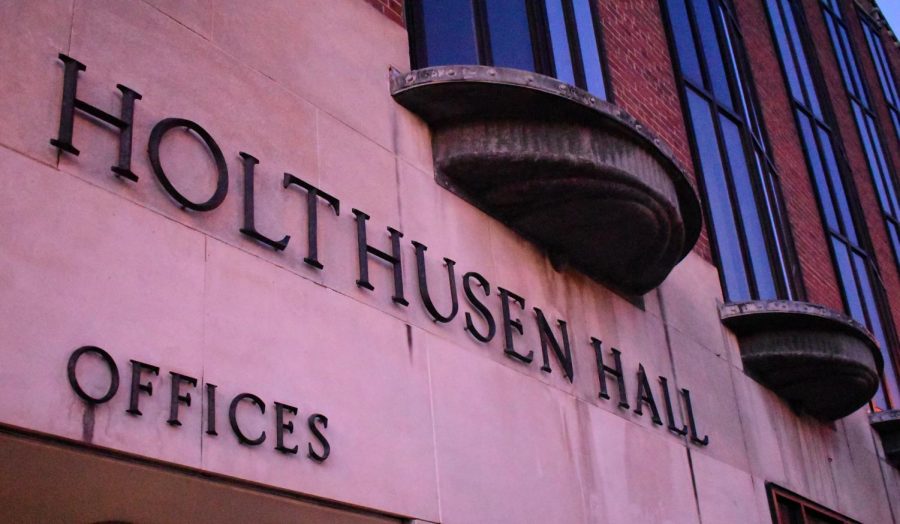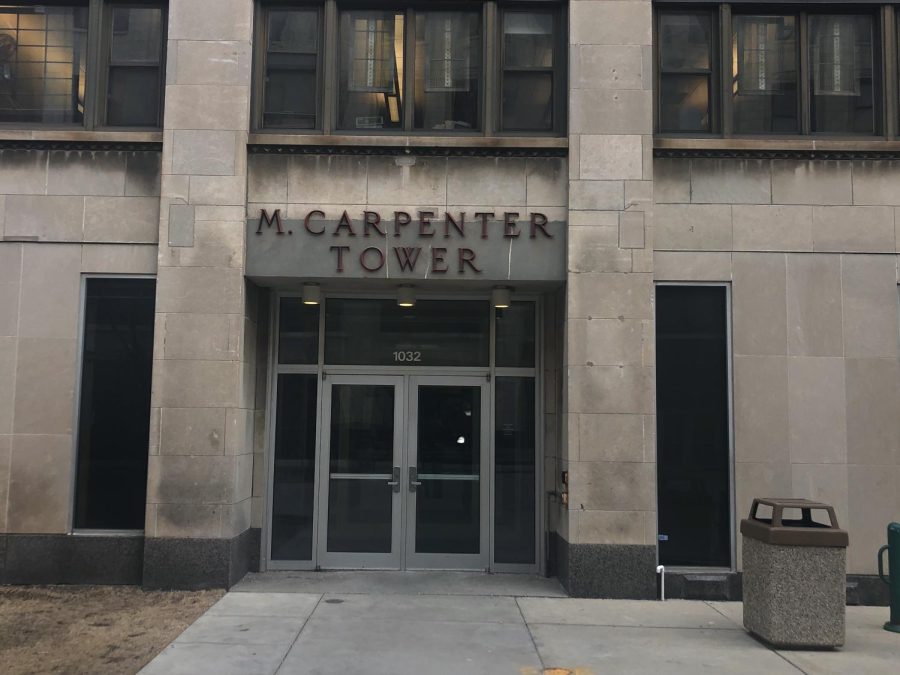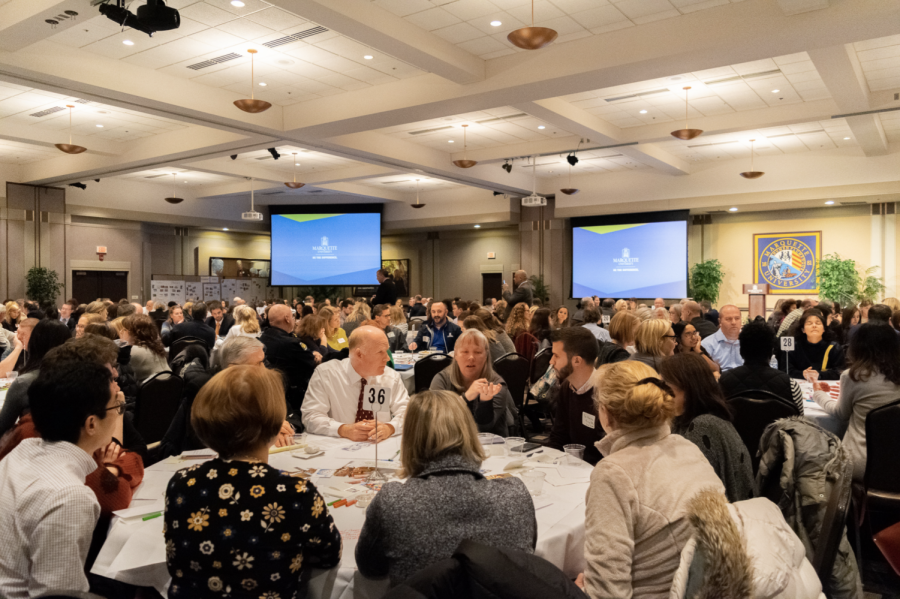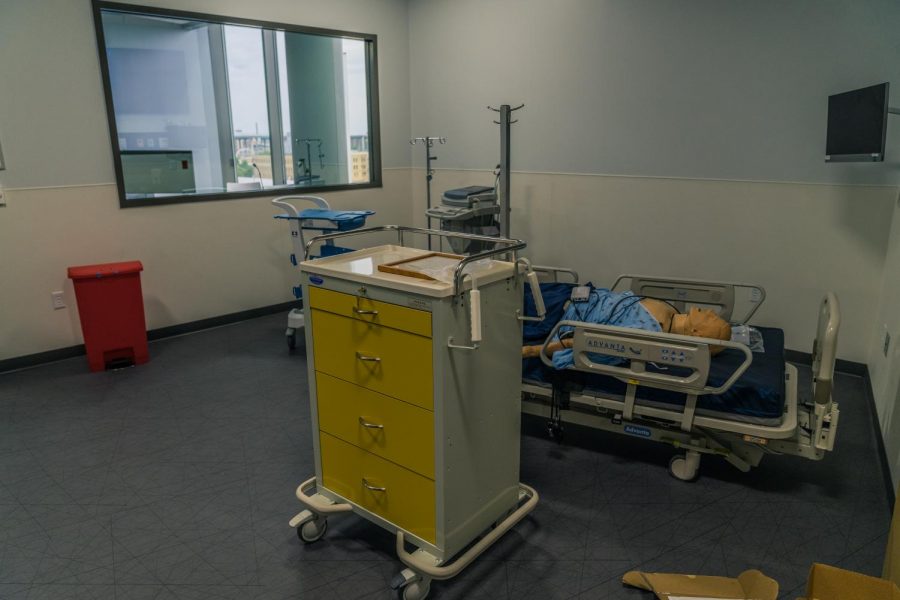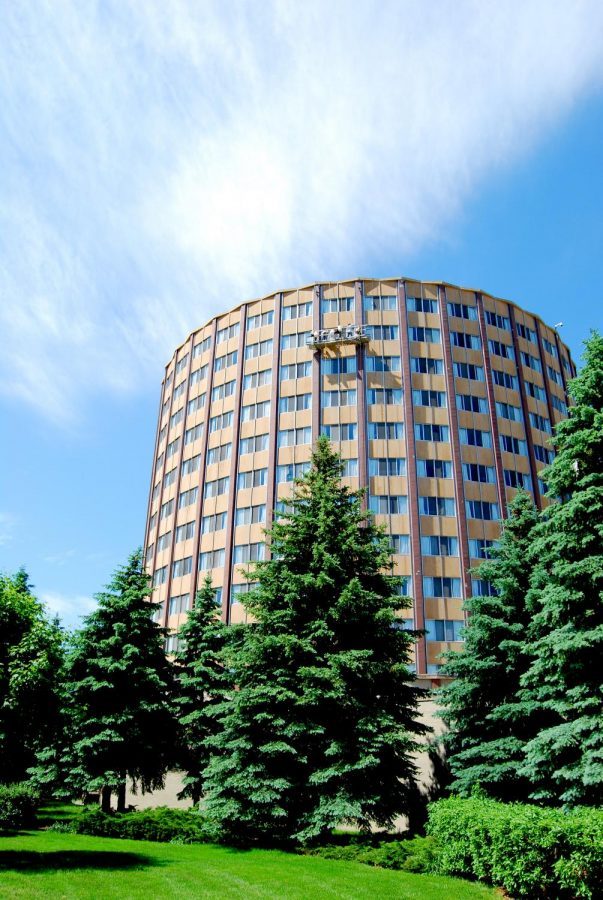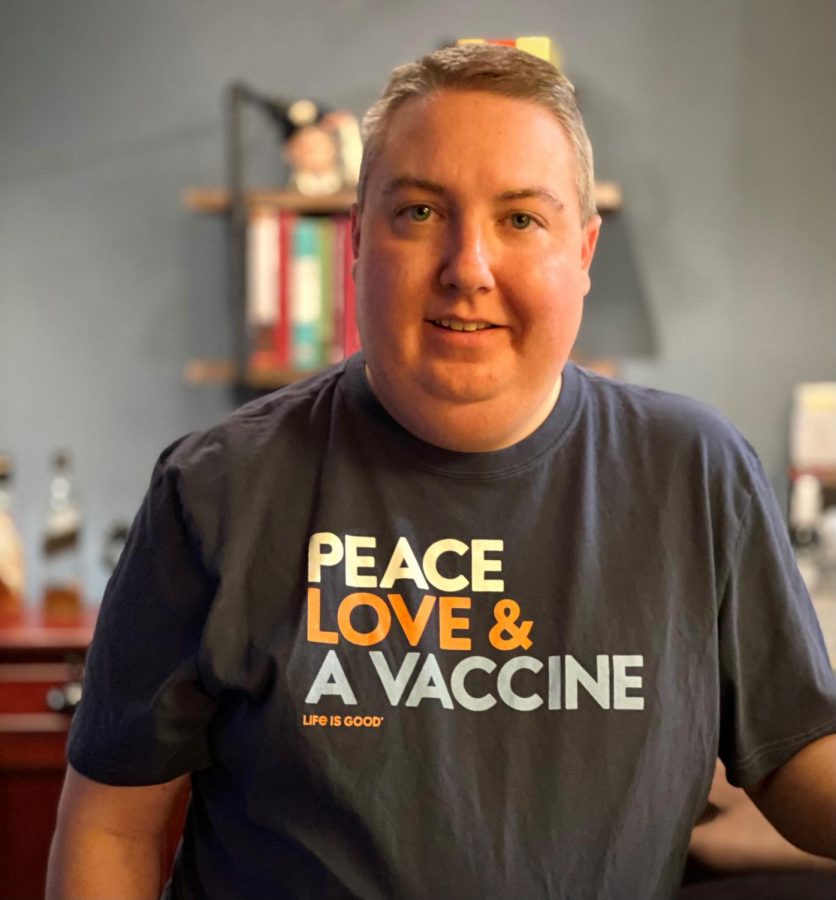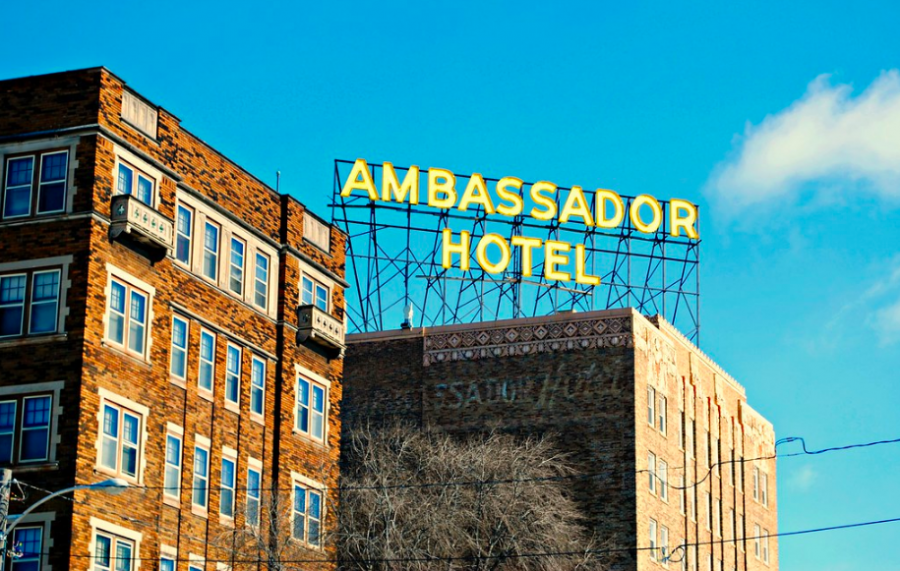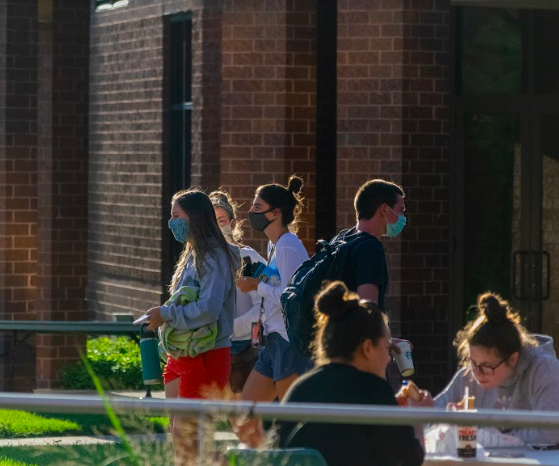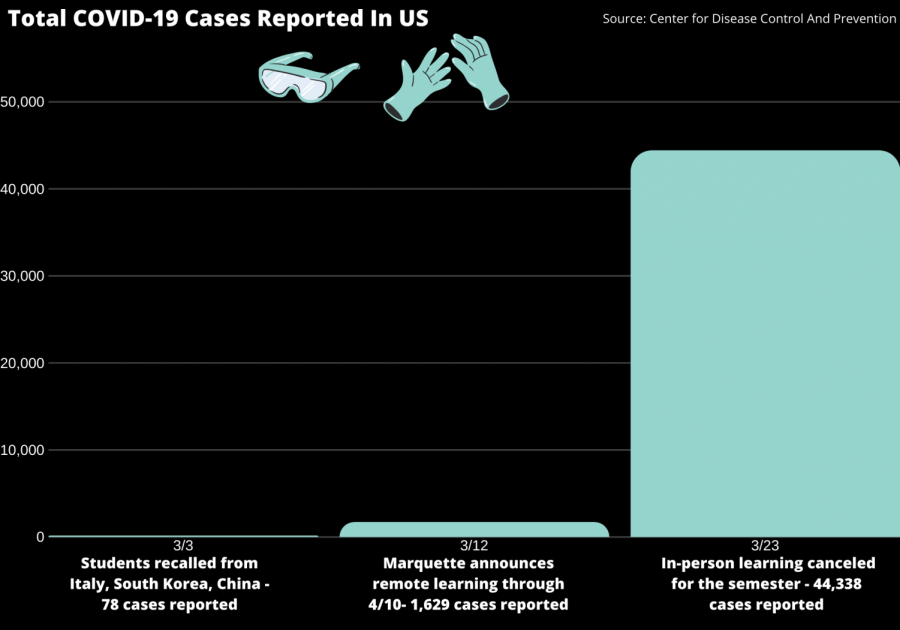Shelby Cullinan, a senior in the College of Engineering, said he had struggled with depression for a number of years before he began attending therapy at the Counseling Center the second semester of his first year at Marquette.
“I’ve personally had a reservation against counseling, so there (was) a little bit of hesitancy there,” Cullinan said.
He described it as a positive experience at first. He said the center worked with his schedule and had someone who would also prescribe medication, which was helpful.
However, he was only offered therapy for a limited period of time, and eventually the Counseling Center no longer prescribed medication. The center now refers those who attend services to outside psychiatrists, according to its website.
Cullinan said he hopes the university brings psychiatrists back to campus to avoid disjointed experiences.
After his time at the center, it wasn’t the staff who referred him elsewhere, but his academic adviser.
“They want to get you in there … and then kind of send you out,” Cullinan said. “That’s not really that clear from the beginning.”
Cullinan said he thought the Counseling Center wants to help as many people it can, but that it can be “tough” due to certain limitations.
As for being referred elsewhere, Cullinan noted certain struggles that students might have, including financial and insurance issues or simply not having access to a car.
At the university address Jan. 29, University President Michael Lovell acknowledged the issue of mental health on Marquette’s campus and said it needs to be a focus. He said that nationally, one in three college students are seen for a mental illness each year and admitted that many college campuses, including Marquette, do not necessarily have the resources to meet these needs.
“We really need to find a better way to address our students’ needs in these areas,” Lovell said at the address.
According to the American Psychological Association in 2017, the student-to-counseling staff ratio is 1,737-1 at colleges and universities. At Marquette, according to the Counseling Center’s staff list, there are 15 staff members available to serve over 11,800 undergraduate, graduate and professional students. This makes the student-to-counseling staff ratio at Marquette approximately 787-1.
The Counseling Center also provides services free of charge to students at the Milwaukee Institute of Art and Design, potentially making the student-to-counseling staff ratio even larger. It is unclear whether MIAD has its own Counseling Center.
At his address, Lovell also announced that the university raised hundreds of thousands of dollars for mental health on campus. He said the funds will go toward increased staffing at the Counseling Center. Lovell did not specify the amount of money raised, nor how the money was raised.
“The university is committing significant immediate-use funds to increase staffing in the Counseling Center as well as support staff for case management in Student Development and bolster outreach, programming and training to address mental health and wellness awareness,” university spokesperson Chris Stolarski said in an email. “President Lovell acknowledged that this is a significant issue facing college campuses, and that we must decrease wait list times and ensure that students are receiving needed mental health services—he is committed to improving mental health care and support at Marquette.”
Lovell also mentioned the Campus Master Plan at his address, which aims to build a recreation and wellness center, which would aim for a holistic approach to health and would house programs for recreation, wellness, counseling and the medical center.
Stolarski also said the university will be creating a college recovery program in the 707 Hub for those “in recovery from or seeking help with substance abuse issues.” He said this was a recommendation made by the President’s Task Force on Alcohol and Other Drugs.
Cullinan said he hopes the Counseling Center will be more upfront about what it offers, describing it as a “stepping stone” to other resources.
“There are missing links of the process … of their range of resources … and the ability to help students on campus,” Cullinan said. “It’s sad for me to see that our needs aren’t fully met.”
Counseling Center outreach coordinators declined to comment.
The university did not comment on the struggles that students are having with one-on-one counseling.
This story was written by Alexa Jurado. She can be reached at alexa.jurado@marquette.edu.

